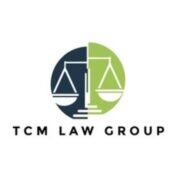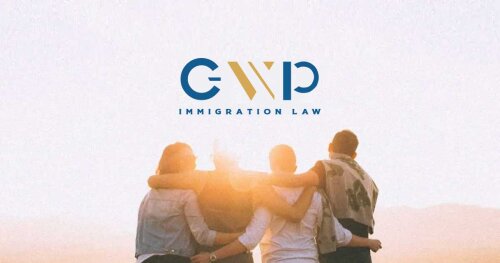Best Domestic Violence Lawyers in Las Vegas
Share your needs with us, get contacted by law firms.
Free. Takes 2 min.
Free Guide to Hiring a Family Lawyer
List of the best lawyers in Las Vegas, United States
About Domestic Violence Law in Las Vegas, United States
Domestic violence law in Las Vegas is governed primarily by Nevada state statutes and enforced locally in Clark County. Domestic violence covers a range of behaviors between intimate partners, family members, or household members, including physical assault, threats, stalking, sexual assault, harassment, and controlling conduct that creates fear for personal safety. Victims may use both criminal and civil legal tools - criminal prosecution pursued by the state, and civil protective orders pursued by the victim - to address abuse and seek safety. Local law enforcement, prosecutors, family courts, and victim services organizations all play roles in responding to allegations and providing help.
Why You May Need a Lawyer
Domestic violence situations often involve high stakes - personal safety, criminal charges, child custody, immigration status, housing, employment, and access to firearms. A lawyer can:
- Explain your legal options and likely outcomes based on the facts.
- Help you obtain protective orders and prepare for court hearings.
- Represent you if you are charged with a domestic-related crime, protecting your rights and challenging evidence.
- Assist with family law matters such as custody, visitation, divorce, and division of property when abuse is a factor.
- Advise on how a protective order or conviction could affect immigration status, housing, or firearm rights.
- Coordinate with victim advocacy groups, law enforcement, and social services to connect you with shelter, counseling, and safety planning.
Local Laws Overview
Key aspects of Nevada and Clark County law that commonly affect domestic violence matters include:
- Criminal enforcement - Domestic violence can result in criminal charges ranging from assault and battery to stalking and sexual assault. Law enforcement officers with probable cause may arrest a suspected abuser. The Clark County District Attorney prosecutes domestic violence cases in criminal court.
- Protective orders - Victims can seek civil protection orders to limit contact and keep an abuser away from their home, workplace, or children. Immediate emergency protection may be available through law enforcement or the courts, followed by temporary orders and potentially longer-term orders after a hearing.
- Child custody and visitation - Allegations of domestic violence affect custody and visitation decisions in family court. The court prioritizes the safety and best interests of the child, and may limit or supervise contact between the alleged abuser and the child.
- Firearm restrictions - Federal and state law may restrict firearm possession by people convicted of certain domestic violence offenses or subject to qualifying protection orders. This can affect both the accused and the protected person if weapons are present in the home.
- Victim rights and services - Nevada provides victim notification rights, access to Crime Victims Compensation, and local programs offering emergency shelter, counseling, and legal assistance. Law enforcement, prosecutors, and courts often coordinate with victim advocates.
Frequently Asked Questions
How do I get immediate protection if I am in danger?
If you are in immediate danger, call 911. Law enforcement can respond and may make an arrest if there is probable cause. Officers can sometimes assist with obtaining a short-term emergency protective order or advise you how to request one from the court. If it is not an immediate emergency, you can go to the family court clerk or courthouse to ask for a temporary protection order and schedule a hearing for a longer order.
What is the difference between criminal charges and a protective order?
Criminal charges are brought by the state against the alleged abuser and can lead to penalties such as jail, fines, probation, and a criminal record. A protective order is a civil court order that restricts an individual's contact with you - for example, no contact, stay-away conditions, or removal from the home. You can pursue a protective order regardless of whether the abuser is criminally charged, and both paths can proceed at the same time.
Can I get child custody or visitation changed because of abuse?
Yes. In custody and visitation proceedings, the court considers the safety and best interests of the child. Allegations of domestic violence, evidence of abuse, and the existence of protective orders are important factors. Courts may limit or supervise visitation, grant primary custody to the other parent, or require supervised exchanges to protect the child.
What kind of evidence is useful in domestic violence cases?
Useful evidence includes photos of injuries or property damage, medical records, police reports, text messages, emails, social media posts, voicemail or recorded threats (if legally obtained), witness statements, dates and descriptions of incidents, and any prior protective orders or criminal history. Keep a record of incidents and preserve electronic evidence when possible.
Will the police always arrest the alleged abuser?
Not always. Police can make an arrest when they have probable cause to believe a domestic violence offense has occurred. Whether an arrest is made depends on the officer's investigation and available evidence. If you think an incident was not appropriately handled by law enforcement, you can consult an attorney or contact the prosecutor's office to discuss next steps.
Can I drop the charges if I do not want to press charges?
Victims can express their wishes to prosecutors, but criminal cases are controlled by the state. Prosecutors decide whether to proceed based on evidence and the public interest. Even if a victim does not wish to participate, prosecutors may continue a case if they believe it is warranted. For the civil protective order, you can request to withdraw your petition, but a judge may still consider whether continued protection is necessary.
What happens if the abuser violates a protective order?
Violating a protective order is a crime or civil contempt depending on the circumstances. If a protective order is violated, call 911 immediately so law enforcement can respond and document the violation. Violations can lead to arrest, criminal prosecution, and additional restrictions or penalties against the abuser.
How long do protective orders last?
Protective orders can be temporary, emergency, or long-term following a court hearing. The duration depends on the order type and the judge's ruling. Some orders are short-term until a hearing, while others may extend for months or years. Ask the court clerk or an attorney for specific information about typical durations in your situation.
Will filing a protective order affect my immigration status?
Filing a protective order does not directly harm immigration status, and in some cases may help support immigration relief such as U visas or VAWA protections for victims. However, immigration consequences can be complex, particularly if the case involves criminal charges or the person seeking the order is not a U.S. citizen. Consult an immigration attorney or an agency that combines legal and immigration services for tailored advice.
Where can I get free or low-cost legal help?
There are local and statewide legal aid organizations that provide assistance to domestic violence victims, including help with protective orders, family law, and immigration issues. Many victim service agencies also offer legal advocacy or referrals. Contact the family court self-help center or local legal aid providers to learn about eligibility for free or low-cost services.
Additional Resources
Organizations and agencies that can be helpful include local law enforcement - Las Vegas Metropolitan Police Department for immediate response, the Clark County District Attorney's Office for information on prosecutions, and the Eighth Judicial District Court - Family Division for civil protection orders and custody matters.
Nonprofit and community resources often provide critical support - examples include victim advocacy groups, domestic violence shelters and hotlines, and legal aid organizations. State programs such as Nevada Crime Victims' Compensation can help cover certain expenses related to victimization. National resources like the National Domestic Violence Hotline can provide 24/7 guidance and referrals. If you have immigration concerns, seek specialized immigration legal assistance.
Next Steps
If you are in immediate danger - call 911 now. If not in immediate danger but you need help:
- Seek safety first - consider a safe location, emergency shelter, or staying with someone you trust.
- Document incidents - write dates, times, descriptions, and preserve any physical or electronic evidence.
- Contact local victim advocates or hotlines for safety planning and emotional support.
- Consider filing for a protective order - visit the family courthouse or contact a domestic violence legal advocate about how to start the process and what to expect at a hearing.
- If criminal conduct occurred or you want law enforcement involved, file a police report and ask for a copy.
- Consult an attorney - for criminal defense if you are charged, or for family law matters and protection orders if you are seeking relief. If you cannot afford a lawyer, ask about legal aid or pro bono services in Las Vegas.
- Use available public services - victim compensation, counseling, child protective services if children are at risk, and agencies that can help with housing or financial assistance.
Taking action can feel overwhelming. You do not need to do it alone - reach out to local victim service agencies, legal aid providers, and law enforcement to get immediate guidance and a tailored plan for safety and legal protection.
Lawzana helps you find the best lawyers and law firms in Las Vegas through a curated and pre-screened list of qualified legal professionals. Our platform offers rankings and detailed profiles of attorneys and law firms, allowing you to compare based on practice areas, including Domestic Violence, experience, and client feedback.
Each profile includes a description of the firm's areas of practice, client reviews, team members and partners, year of establishment, spoken languages, office locations, contact information, social media presence, and any published articles or resources. Most firms on our platform speak English and are experienced in both local and international legal matters.
Get a quote from top-rated law firms in Las Vegas, United States — quickly, securely, and without unnecessary hassle.
Disclaimer:
The information provided on this page is for general informational purposes only and does not constitute legal advice. While we strive to ensure the accuracy and relevance of the content, legal information may change over time, and interpretations of the law can vary. You should always consult with a qualified legal professional for advice specific to your situation.
We disclaim all liability for actions taken or not taken based on the content of this page. If you believe any information is incorrect or outdated, please contact us, and we will review and update it where appropriate.













